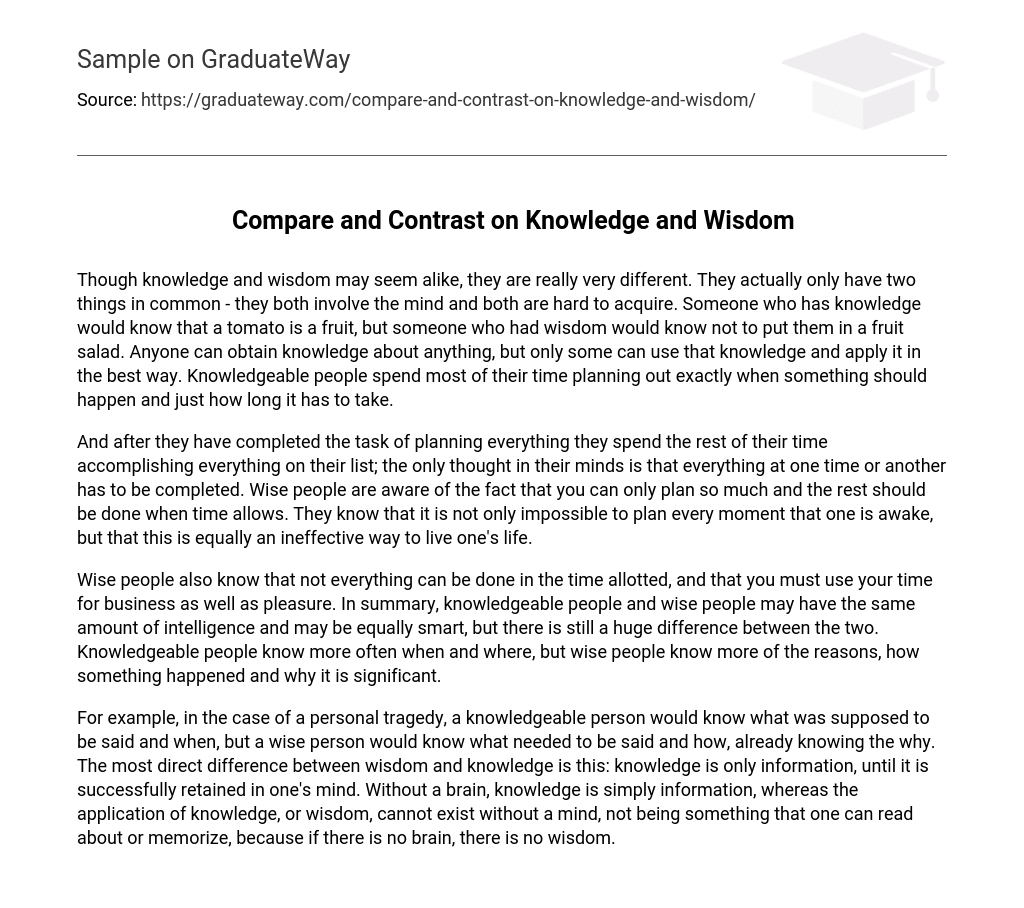Though knowledge and wisdom may seem alike, they are actually very different. They share two commonalities – they involve the mind and are difficult to acquire. Those with knowledge understand that tomatoes are fruits, while those with wisdom know not to include them in fruit salads. While anyone can gain knowledge on any subject, only a few possess the ability to utilize and apply that knowledge effectively. Knowledgeable individuals devote significant time to carefully strategize the timing and duration of events.
After completing the task of planning everything, wise individuals spend the remaining time achieving their listed goals, realizing that everything needs to be completed eventually. They understand the limitations of excessive planning and recognize the importance of utilizing available time to accomplish tasks. Wise individuals acknowledge that planning every single moment is unattainable and an inefficient way to live life.
Wise individuals also understand that not every task can be completed within the designated time and must allocate their time for both work and enjoyment. To sum up, knowledgeable individuals and wise individuals may possess the same level of intellect and intelligence, but there remains a considerable distinction between the two. Knowledgeable individuals frequently possess greater awareness of when and where, while wise individuals hold deeper insights into the reasons, method, and significance behind events.
When it comes to personal tragedy, someone who has knowledge would understand what to say and when. However, a wise person would know what should be said and how, as they already understand the reasons behind it. The primary distinction between wisdom and knowledge is that knowledge is merely information until it is effectively memorized. Without a brain, knowledge remains as mere information. In contrast, wisdom requires a mind as it cannot be learned or memorized. Without a brain, wisdom cannot exist as there is no capacity for understanding.





